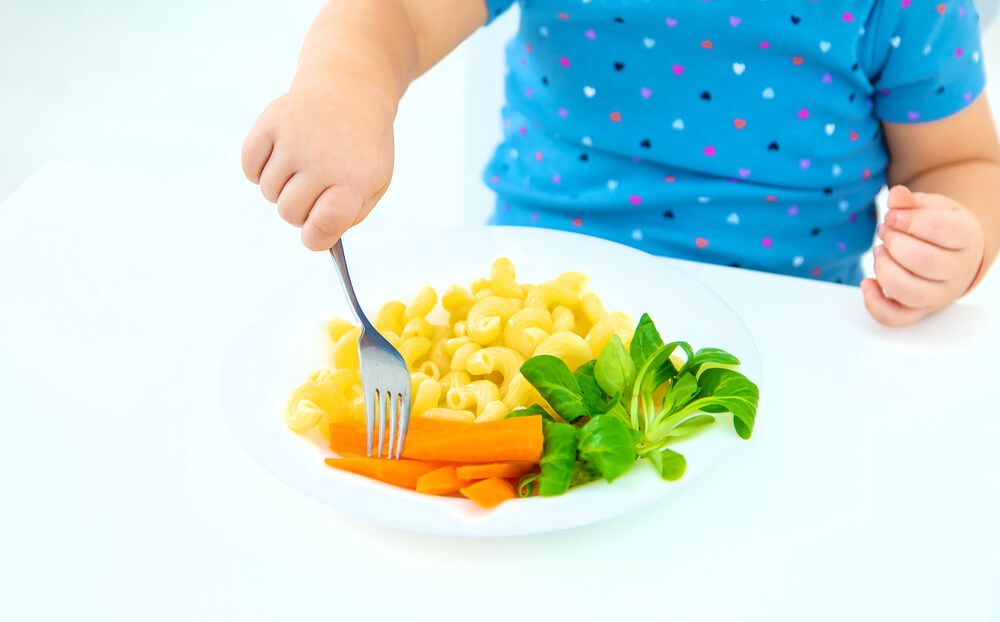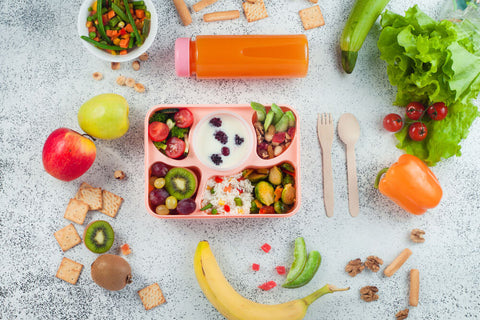Answering Your Top 6 Questions About Introducing Solid Foods to Your Baby

Introducing solid food to your baby marks a significant milestone in their development journey. While it's a moment of excitement, we understand it can also bring about questions and uncertainties for every parent. Fear not, as we're here to provide you with all the answers and support you need to navigate this exciting phase!
1. Signs of Readiness: When Should I Start Introducing Solid Food?
Every new parent wonders: When is the right time to introduce solid food to my baby? Typically, for the first four to six months, breast milk or formula serves as the primary source of nutrition for your little one. Around this time, you'll notice signs indicating readiness for solids. Look for your baby's ability to sit up with minimal support and their curiosity towards food. These cues signify that your baby is ready to embark on the journey of solid foods.
2. What to Feed Your Baby: Tips for Introducing Solids
As you introduce solid food, it's crucial to continue breastfeeding or formula feeding until your baby is at least 12 months old. Begin by slowly introducing one food type at a time. Start with iron-rich baby cereal, essential for your child's growth. Progress to smooth pureed fruits and cooked vegetables such as pumpkin, sweet potato, or zucchini. Opt for homemade purees whenever possible, ensuring they are free from added salt, sugar, or strong flavors. Remember, simplicity is key in the early stages of introducing solids.
3. Baby-Led Weaning vs. Traditional Purees: What Works Best?
The debate between baby-led weaning and traditional spoon feeding is ongoing. While there's no definitive answer, it ultimately boils down to what works best for you and your baby. Baby-led weaning involves offering soft foods that babies can grasp and feed themselves, while traditional purees are spoon-fed by parents. Experiment with both methods and choose the one that aligns with your baby's preferences and developmental needs.
4. Portion Control: How Much Solid Food Should My Baby Have?
The amount of solid food your baby consumes may vary. Begin by offering a few spoonfuls of solid food after breastfeeding or bottle-feeding. Gradually increase the quantity as your baby shows readiness. Pay attention to your baby's cues, as they will regulate their intake based on hunger and satiety. Remember, your baby's appetite is unique, so trust their instincts and allow them to eat as much or as little as they desire.
5. Transitioning to Two Meals a Day: When Is the Right Time?
Around six months of age, you can gradually introduce solids alongside breast or bottle feeding. Start by incorporating one or two spoonfuls of baby cereal or puree during feeding times. Observe your baby's response and appetite to determine when to increase solid food intake. Trust your instincts as a parent and adjust the feeding schedule based on your baby's cues.
6. Managing Allergies and Intolerances: A Balanced Approach
Navigating your baby's diet is a delicate balance between breast milk, formula, and solid foods. While breast milk or formula remains essential for the first year to support immune system development, introducing solids at the right time is also crucial for providing essential nutrients and preventing allergies. When introducing new foods, stick to one type at a time and allow a three-day interval between each new introduction. This approach helps identify any potential allergies or intolerances, ensuring a safe and enjoyable feeding experience for your baby.
In Conclusion: Embracing the Journey
Transitioning your baby to solid foods is a significant developmental milestone filled with excitement and discovery. Remember, this journey should be approached with positivity and joy. Embrace the process, trust your instincts as a parent, and cherish the moments of exploration with your little one. With the right guidance and preparation, introducing solids can be a rewarding experience for both you and your baby.
Now, armed with knowledge and confidence, embark on this journey with your little one, celebrating each milestone along the way.
And always remember, you're not alone in this journey. We're here to support you every step of the way!
Would you like to explore products to assist you on this journey? Check out the Cherub Baby Food Maker for convenient and nutritious homemade baby food preparation.
Together, let's make this transition a smooth and enjoyable experience for you and your baby!





